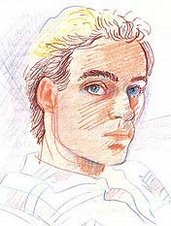 |
| Billionaire Thiel, seen here in “regular guy” mode, hopes to generate technocratic policy-shaping buzz with his Antichrist lectures. |
Peter Thiel’s forthcoming series, The Antichrist, is positioned less as a devotional Bible study and more as an elite salon on religion, power, and technology. Hosted by the nonprofit ACTS 17 Collective at San Francisco’s Commonwealth Club, the four Monday night sessions are ticketed as a single off-the-record program that has already sold out. The schedule emphasizes community and dialogue—receptions bookend a lecture plus Q&A—suggesting Thiel wants a sustained, cumulative argument rather than one-off talks. The basics are public: dates (Sept. 15, 22, 29 and Oct. 6, 2025), venue, timing (5:30–9:30 p.m. PT), and the off-the-record ground rule. (Luma, ACTS 17 Collective)
The promotional notes say Thiel’s remarks will be “anchored on science and technology” while engaging theology, history, literature, and politics, and they name an unusual reading list: René Girard, Francis Bacon, Jonathan Swift, Carl Schmitt, and John Henry Newman. The format lists a Q&A led by Peter Robinson (of Uncommon Knowledge), reinforcing that the conversation will range across intellectual traditions, not just biblical exegesis. In other words, expect a hybrid of seminar and strategy session—aimed at people who design or govern powerful systems. (Luma)
A plausible arc emerges from those sources and Thiel’s recent public interviews. Girard frames how mimetic desire inflames rivalry and scapegoating; Bacon represents techno-optimism and the research state; Swift lampoons grandiose “progress” schemes; Schmitt opens questions of sovereignty, emergency, and the katechon (the “restrainer” of 2 Thessalonians); and Newman supplies the classic Christian synthesis on Antichrist. Thiel has already previewed a key tension: modern technologies (nuclear, bio, AI) give history an apocalyptic edge, yet a centralized, emergency-power response—“a one-world state with real teeth”—risks becoming Antichrist-like itself. He has said the task is to find a narrow path that avoids both Armageddon and a counterfeit savior—language that will likely structure the series. (Hoover Institution)
So the series matters as an attempt to recode “Antichrist” from caricature into a diagnostic of systems that concentrate power, compel conformity, and promise salvation through administration. Watch for two interpretive moves: first, a shift from a single villain to a structure that acts like one; second, a search for plural, accountable restraints—cultural, institutional, legal—that can “hold back” chaos without collapsing into total control. Given the off-the-record setting and the curated audience, the live discussion may shape how tech and policy insiders talk about risk governance this fall, even if no official transcript ever appears. (Luma, ACTS 17 Collective)
 |
| Speculative preview based on public syllabus and prior commentary; not official. |
Peter Thiel on the “Global Surveillance State” and the Antichrist
— karma (@karma44921039) June 9, 2025
“The Antichrist will talk about Armageddon all the time. He’ll scare people—then offer to save them.” pic.twitter.com/buKpfXzhtc
Created with help from ChatGPT





No comments:
Post a Comment